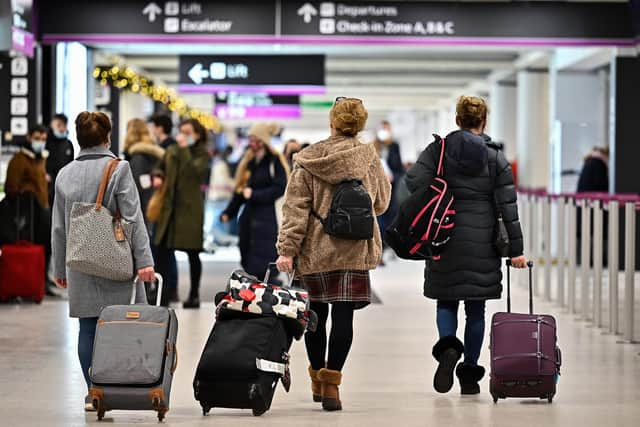Edinburgh tourist tax: Minister refuses to list what councils can spend Visitor Levy revenue on
and live on Freeview channel 276
Tourism minister Tom Arthur has insisted the question of how money raised by the proposed new tourist tax should be spent is a matter to be decided locally.
Appearing before a Holyrood committee, he refused to give a "prescriptive" list of what the visitor levy revenue could be used for. Edinburgh – expected to be the first council to introduce a visitor levy – has signalled a variety of potential uses for the money raised, including more public toilets, graffiti removal and improvements to city parks. More frequent emptying of litter bins and extra spending on road maintenance have also been mentioned.
Advertisement
Hide AdAdvertisement
Hide AdThe legislation, currently going through the Scottish Parliament, says the revenue must be reinvested locally in "facilities and services substantially for or used by persons visiting the area of the local authority for leisure purposes”. But the requirement is open to different interpretations.


When Mr Arthur gave evidence to the parliament's local government committee on Tuesday, Tory MSP Pam Gosal asked about “grey areas” like "bins, roads and potholes”. She said these were part of a council’s normal responsibility, but they were used by tourists as well, so how would the government make sure day-to-day costs were not taken from the levy rather than the normal budget.
Mr Arthur said: “It is an absolutely fair and reasonable question. There could be a temptation in responding to start to get into a prescriptive list of what is within scope and what is outwith scope. That would be would clearly be counter to the intention of a Bill which is about fiscal empowerment of local government and for them to determine how that revenue is spent consistent with the legislation.
"I recognise the concern you express that there could be too liberal an interpretation of the legislation and the revenue would not be used in a way that was felt to be consistent with the principle of the Bill to support the visitor economy, but that's why we have the provision around consultation. A council seeking to introduce a visitor levy would have to set out a scheme consistent with the objectives, it would have to be consulted on with businesses and with the community, they would have to set out what they believed the impact would be and they would have to report on it.”
Advertisement
Hide AdAdvertisement
Hide AdAnd he added: “Ultimately these decisions are going to be taken by elected members who are democratically accountable to their electorates.”
Under the legislation, councils would decide whether or not to introduce a tourist tax in their area and they would set the level of the tax. But the Bill requires councils to consult local communities, businesses and tourist organisations both before introducing a levy and on the proposed scheme.
Edinburgh has previously agreed a flat-rate charge of £2 per person per night for the new levy, but the legislation requires it to be a percentage rate and council leader Cammy Day has suggested it could be around 4 per cent.
The levy will apply to overnight accommodation in hotels, hostels, bed and breakfasts, self-catering accommodation, campsites, caravan parks and boat moorings. The Scottish Government recently announced it also wanted a levy on cruise ship passengers But Mr Arthur told the committee he did not want to delay the current Bill if the work on extending it to cover cruise ships was not going to be ready in time.